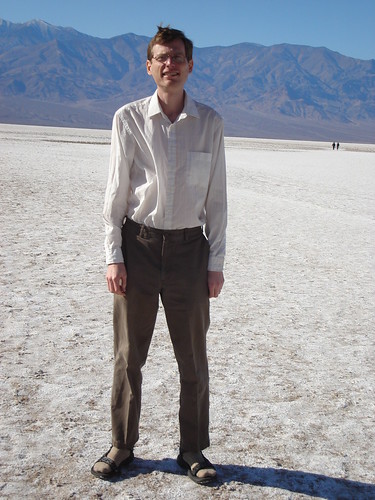Yesterday I attended a talk by Aubrey de Grey, the purpose of which seemed to be to get feedback on messaging to potential donors. The feedback was good, but perhaps hard to hear. I hope de Grey uses some of it. Much of the feedback could apply to anyone selling a radical program.
Don’t dwell on your critics. Debunking detractors is too easy, comfortable, and personal. Every second you’re telling me why your detractors are wrong you’re not telling me how your idea will work. Suspicious. Reason puts it well:
[E]very new idea, every plan, arrives associated with a raft of dumb objections, but you won’t convince a smart, educated audience of the merits of your idea by taking time to dispel the dumb objections. The world is full of dumb ideas – many more of them than good ideas. Dumb ideas also arrive accompanied by dumb objections (just look at any average day in politics…), and one of the chores of being involved in a funding organization is to listen to people trying to demonstrate that a dumb idea has merit by demolishing dumb objections to that dumb idea. This is a form of rhetorical alchemy – often performed quite innocently by those sold on a plan that just won’t work – that raises red flags for folk in funding organizations.
Don’t dwell on the more radical implcations of your program (unless they’re short term money makers). De Grey claimed that repairing each of the seven causes of aging (with the possible exception of mutant mitochondria) individually would cure a raft of diseases. If true, this should be more than adequate to fund fixes for each of the seven causes individually without ever mentioning any potential for life extension. De Grey claimed this is a hard argument to make, as curing individual diseases through other means will be less expensive than the relevant cause of aging fix. If true, de Grey is either extremely optimistic about conventional medical research or is lying about the level of funding needed for his program, considering the $US billions spent on individual disease research annually. I suspect de Grey is wrong on this point and hope other researchers and organizations take an engineering-fixes-for-causes approach via funding for individual disease research.
Since my last (peevish) post mainly about de Grey’s work slightly over a year ago, Methuselah Mouse Prize total ($1.6m received plus $2.5m committed) funding has risen by nearly $1m. More importantly $4m has been raised for the research program, with LysoSENS and MitoSENS work having begun. De Grey also had a more concrete plan for ramping up the research program as funding becomes available than I recall having seen before; unfortunately I couldn’t find it quickly at sens.org.
I still highly recommend giving to the Methuselah Mouse Prize/Foundation. Highly recommend would be an understatement. I don’t know of a more important cause.
Somewhat relatedly, I want to reiterate that even without repair technologies, increased lifespan over the past century was concomitant with decreased absolute time spent in a diseased state and that on an individual level, a healthy life expectancy increase is available now, no technology required.
Update 20070109: Reason argues that if the focus is not on fighting aging, progress will only be incidental and inefficient. Perhaps, but if nearly everyone is in a “pro-aging trance” as de Grey is fond of saying, should your marketing really depend on breaking that trance? Let’s face it, in all probability that trance will not be broken and relative to the medical innovations required is not even a major obstacle. Individuals will nearly always choose to prolong health and life (when self-control is not involved anyway), regardless of their emotional or religious attachments to death. In my view de Grey has done a great service by identifying a set of targets for repair and recommending an engineering approach. If there’s value in his approach it will be used by others with smaller goals resulting in faster and more efficient incidental progress against aging. The indefinite lifespan part of his pitch is just Macho Flash:
Macho Flash WORKS internally — at raising the most money from a small group of people (which then also KEEPS us small and insignificant).
